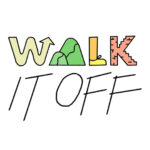When John Prine released “Illegal Smile” in 1971, it resonated instantly, becoming a beloved tune celebrated for its lighthearted spirit. However, in today’s hyper-sensitive climate, one might wonder if the song’s message of carefree escapism would be met with the same open arms. While in 1971, listeners readily embraced its playful defiance, in the modern era of instant online judgment, the simple sentiment of “just having some good clean fun” could potentially spark unwarranted controversy. Yet, “Illegal Smile” persists in its popularity, a testament to its timeless appeal and the enduring charm of John Prine.
This enduring affection perhaps stems from the song’s embodiment of freedom and individuality, qualities that feel increasingly precious in a world of ever-present scrutiny. But beyond any potential social commentary, “Illegal Smile” stands as a quintessential introduction to the genius of John Prine, a songwriter who effortlessly blended wit, empathy, and profound observation.
“Illegal Smile” appeared on Prine’s self-titled debut album, released in October 1971 by Atlantic Records. While initially charting modestly, reaching No. 154 on the Billboard Top 200 in 1972, the album experienced a significant resurgence in 2020, following Prine’s passing due to COVID-19 complications at the age of 73, climbing to No. 55. This renewed attention underscored Prine’s lasting impact and the timeless quality of his songwriting, particularly the disarming simplicity of “Illegal Smile.”
This song served as the world’s first glimpse into Prine’s unique artistry. His signing to Atlantic Records was a story in itself, a testament to his raw talent. Legendary executive Jerry Wexler, the man who coined “Rhythm & Blues” and championed icons like the Allman Brothers and Aretha Franklin, recognized Prine’s potential after witnessing him perform at a Kris Kristofferson show. This chance encounter set the stage for Prine’s remarkable career.
Reflecting on the recording of his debut album, Prine admitted to feeling intimidated. In the liner notes for Great Days: The John Prine Anthology, he confessed, “I was terrified. I went straight from playing by myself, still learning how to sing, to playing with Elvis Presley‘s rhythm section.” This juxtaposition of raw, burgeoning talent with seasoned professionals highlights the organic and somewhat accidental nature of Prine’s rapid ascent.
Within those same liner notes, Prine addressed the long-standing interpretation of “Illegal Smile” as an anthem for marijuana users. While acknowledging its adoption by that community, he clarified that the song’s genesis was far more personal and observational. According to Prine, the song wasn’t about drug use, but rather about his lifelong tendency to find joy and amusement in moments that others might overlook. He explained the meaning was rooted in “how, ever since I was a child, I had this view of the world where I can find myself smiling at stuff nobody else was smiling at.”
Despite its deeper, more introspective origins, Prine wryly acknowledged the song’s potent appeal to “dope smokers,” admitting he “didn’t want to stop every time I played it and make a disclaimer.” This acceptance of multiple interpretations is part of the song’s charm and enduring relatability.
The 3-minute and 10-second track, which opens side one of his debut album, begins with a bright, inviting acoustic guitar strum. It’s immediately accessible and human, setting a tone of intimate storytelling. Then Prine’s distinctive voice enters, delivering the opening lines with a mix of world-weariness and wry humor: When I woke up this morning, things were lookin’ bad… He continues to paint a picture of mundane malaise:
When I woke up this morning, things were lookin’ bad
Seem like total silence was the only friend I had
Bowl of oatmeal tried to stare me down, and won
And it was twelve o’clock before I realized
I was havin’ no fun
This relatable depiction of a humdrum morning sets the stage for the song’s central theme: the search for simple pleasures and escape from the everyday grind. The pre-chorus offers the solution, delivered with Prine’s characteristic laid-back charm:
Ah, but fortunately I have the key to escape reality
And you may see me tonight with an illegal smile
It don’t cost very much, but it lasts a long while
Won’t you please tell the man I didn’t kill anyone
No, I’m just tryin’ to have me some fun
The “illegal smile” becomes a metaphor for finding joy in small, perhaps slightly subversive, moments. It’s a rebellion against the pressures of conformity and the weight of daily life. The lyrics cleverly play with the idea of illegality, not in a criminal sense, but in the sense of a smile that might be frowned upon by a world that often demands seriousness and conformity. It’s a smile that’s just for oneself, a private act of defiance and joy.
The second verse deepens the sense of struggle and the need for this emotional escape:
Last time I checked my bankroll
It was gettin’ thin
Sometimes it seems like the bottom
Is the only place I’ve been
I chased a rainbow down a one-way street dead end
And all my friends turned out to be insurance salesmen
These lines evoke a feeling of economic hardship and disillusionment, making the “illegal smile” even more poignant as a form of personal resilience. The image of chasing a rainbow down a dead-end street is a powerful metaphor for dashed hopes and the often-unfulfilling nature of adult life.
Through the combination of its catchy melody, Prine’s affable delivery, and its relatable themes of finding joy amidst hardship, “Illegal Smile” solidified John Prine’s place as a singular voice in American songwriting. He possessed the rare ability to articulate the everyday struggles and small triumphs of ordinary people with humor and grace. He was a poet of the people, capable of finding magic in the mundane and offering profound insights with a grin and a gentle strum.
Even though John Prine is no longer with us, his music, and especially the enduringly charming “Illegal Smile,” continues to resonate. The song remains an anthem for those seeking a moment of levity, a reminder that even in challenging times, there’s still room for a little bit of “illegal” joy. And perhaps, somewhere, we can still imagine seeing him tonight, leaning against a gate, sharing that knowing, illegal smile.


